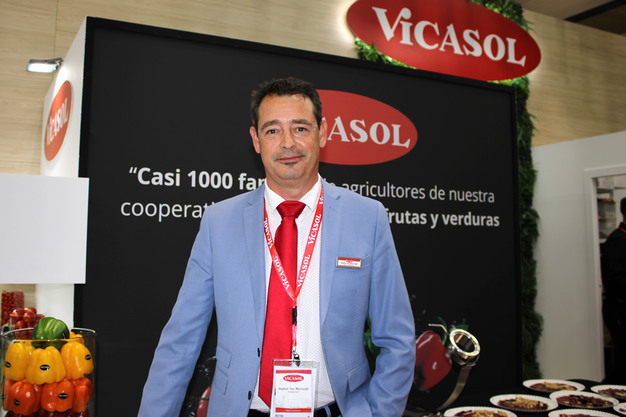The Spanish tomato season started late this year. "Because of the hot summer, it was more difficult to start early. With a week or two we only expect to have reasonable volumes in-house," says Stephan van Marrewijk, who works in the commercial department of the Spanish cooperative Vicasol. "This creates high prices on the market, as supply in the rest of Europe is also starting to dry up nicely."

Fear of the ToBRFV virus has also caused fewer tomatoes to be planted in Spain in favor of peppers, courgettes, and aubergines. "At our cooperative, tomato plantings are down about 8-9% and it won't be much different elsewhere. I see this as a transition year. People need to gain confidence in the resistant varieties. For us as a real tomato cooperative, that does chop into it, but if cultivation goes well this year, I do expect more tomatoes to be planted next year," Stephan says.
 "I don't expect that this year we are going to have a boom in tomatoes in January like previous years, but rather foresee a somewhat flatter line in the supply. With all the climatic extremes, it is becoming increasingly difficult to start early and stop later. So the money has to be made in a shorter time. Traditionally, we have been an Almería cooperative, but we are now looking at other, more northern regions to secure future production. We are also investing heavily in machinery and automation to cope with staff shortages and reduce costs."
"I don't expect that this year we are going to have a boom in tomatoes in January like previous years, but rather foresee a somewhat flatter line in the supply. With all the climatic extremes, it is becoming increasingly difficult to start early and stop later. So the money has to be made in a shorter time. Traditionally, we have been an Almería cooperative, but we are now looking at other, more northern regions to secure future production. We are also investing heavily in machinery and automation to cope with staff shortages and reduce costs."

The Spanish pepper season is also slow to start this year, although Stephan expects larger volumes from next week. "Cucumbers and courgettes have also started with high prices due to the bad weather, although in my view this is more luck than wisdom. No year is the same." In recent years, Vicasol has invested heavily in its organic production. Its organic acreage now stands at 270 hectares. "All the products we grow conventionally are also available organically. We can serve the market well with this. Many customers who buy our conventional greenhouse vegetables now also take the organic ones."

Stephan van Marrewijk during the Fruit Attraction in Madrid
At Vicasol, around 80% of sales are aimed at supermarkets. The remaining 20% is distributed to slicers, catering, and wholesalers. "The local Spanish market is also becoming increasingly important for us. Spanish supermarkets increasingly want to be on the menu with year-round local cultivation. We also sell on the domestic market products like Lamuyo peppers, pink tomatoes, and salad tomatoes that are not in demand for export."
 For more information:
For more information:
Stephan van Marrewijk
Vicasol
04738 Puebla de Vicar, Almería
Tel: +34 950 55 32 00
[email protected]
www.vicasol.es
